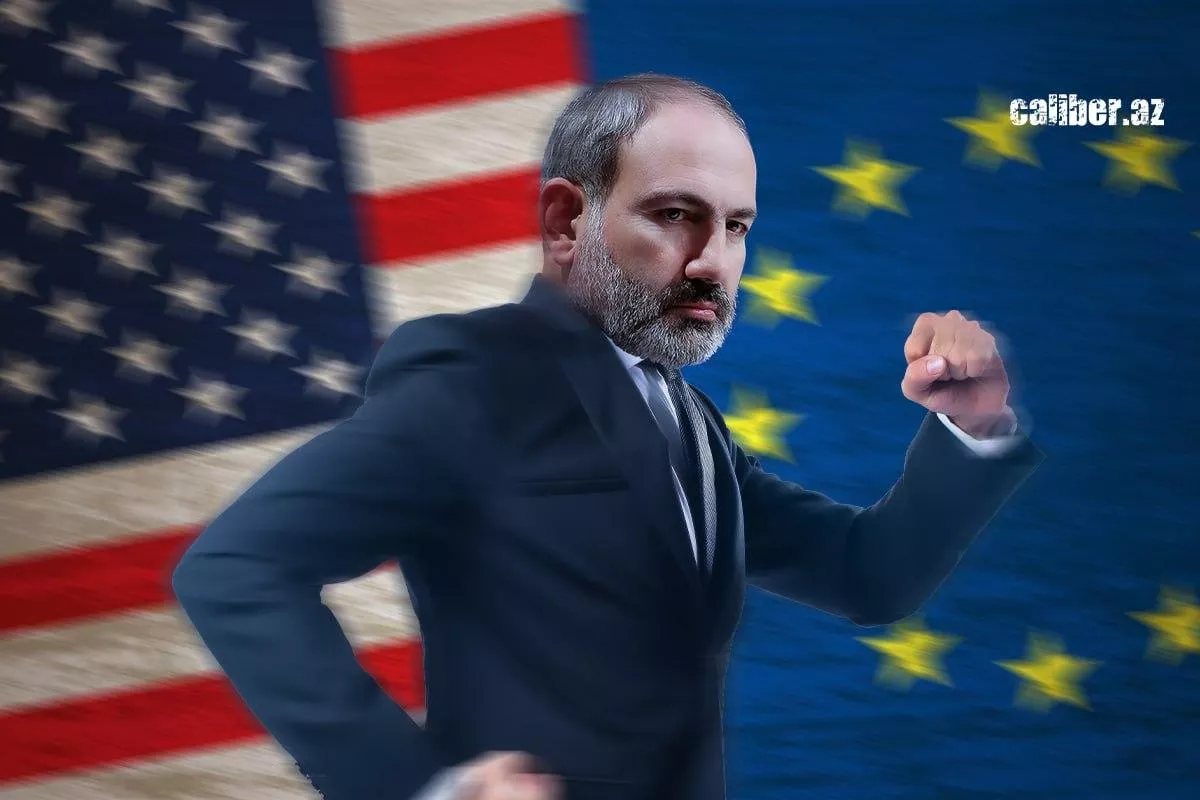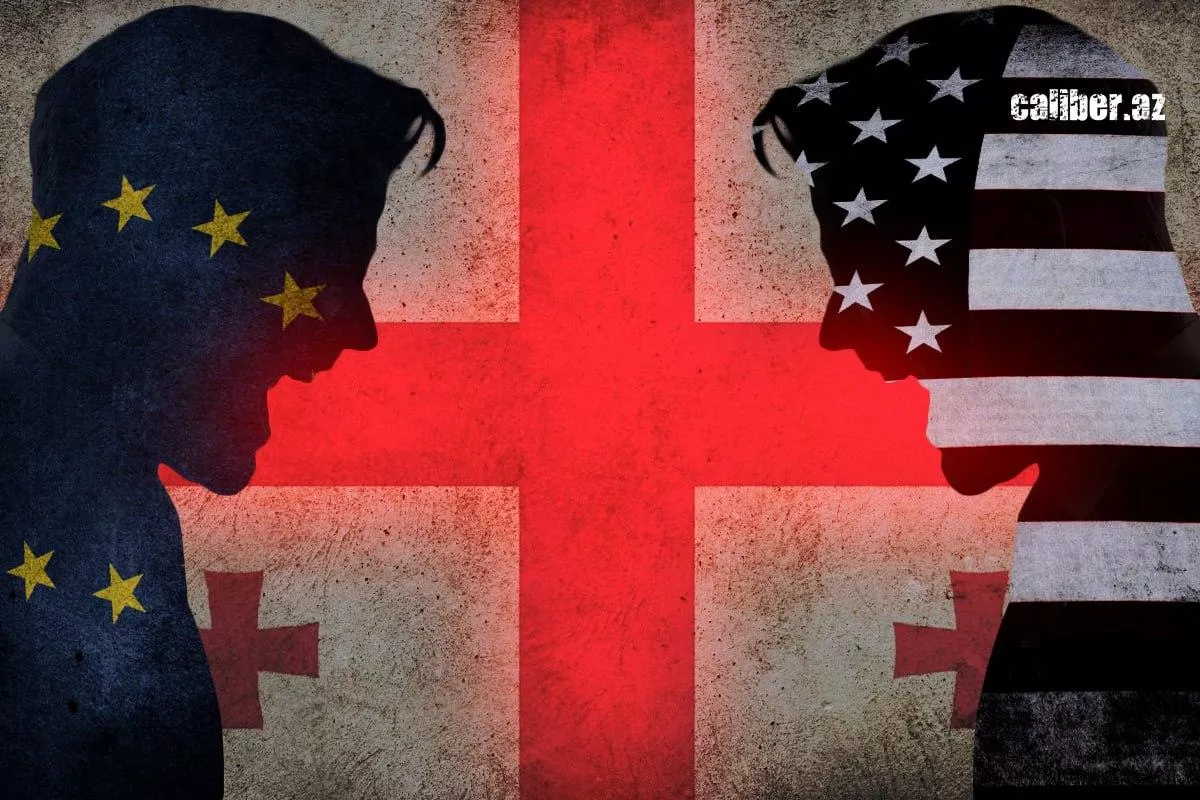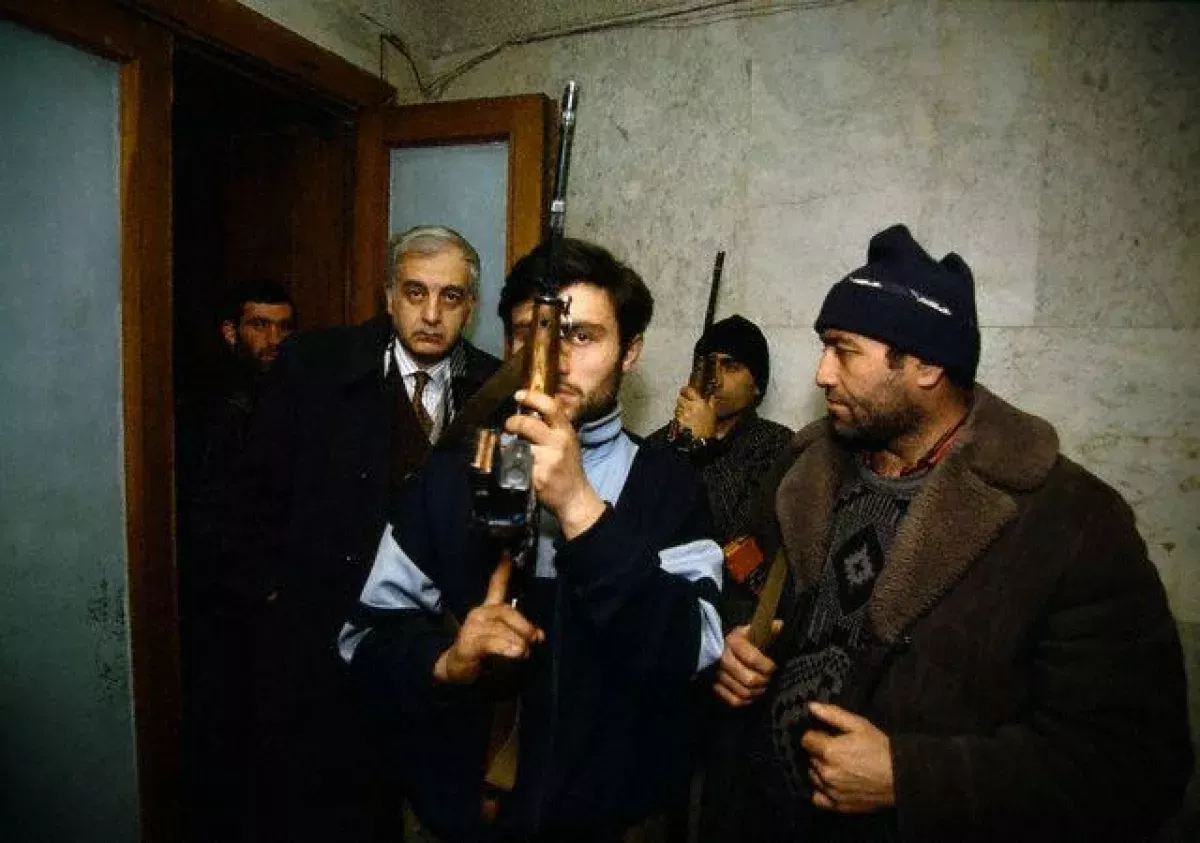Georgia's outgoing president’s stance raises concerns of dual power, potential civil war review by political analyst
The outgoing Georgian President Salome Zourabichvili has refused to leave not only the presidential palace in Tbilisi after December 29, but also Georgia itself.
During her visit to Strasbourg, she stated that she does not want to be a politician in exile, like Belarusian opposition leader Svetlana Tikhanovskaya, who is still regarded by some individuals in the West as the "legitimate president of Belarus," rather than Alexander Lukashenko, who officially gained 80 per cent of the votes.
"I will not leave Georgia; there is no question of leaving my country. I am here, and I want to make it clear that I do not want to be compared to Tikhanovskaya. What I need now is support, here, in my country, alongside my people," Zourabichvili stated.
Zourabichvili's refusal to leave Georgia could suggest that she already has designated areas within the country where, together with the pro-Western opposition, she plans to entrench herself in case of failure in Tbilisi. This carries the risk that external forces may attempt to create a dual power structure in Georgia and fuel a civil war. In turn, this could serve as a trigger for a bigger conflict across the entire Caucasus.
During her speech at the European Parliament on December 18, Zourabichvili warned that if the Georgian Dream party remains in power and Georgia allegedly falls under Russia's control, it could jeopardize Armenia's European future. Of course, by European future, Zourabichvili is referring to the status of Armenia as a military foothold of France, which Prime Minister Nikol Pashinyan is turning his country into. In this way, Zourabichvili made it clear that she intends to transform Georgia into a military corridor connecting the Black Sea to this foothold.

The backers of Zourabichvili and the pro-Western opposition have insisted for a long time that Georgia should open a second front against Russia. As a result, Zourabichvili's presence in Georgia after the expiration of her term, especially as a claimant to the sole legitimate authority, becomes highly dangerous for the country's statehood and for the entire South Caucasus.
At the same time, the situation in separatist Abkhazia is becoming increasingly unstable and complex. Amid an energy crisis and the cessation of funding for the separatist regime from Russia, the support base for the local criminalized elite has sharply diminished. As a result, infighting within this elite has erupted into violent gang confrontations, including gunfire.
On December 19, a conflict broke out in the separatist "parliament" in Sukhumi between two "opposition MPs" Adgur Kharazia and Kaan Kvarchia, which escalated into a shooting. Kharazia pulled out a pistol and started shooting, and as a result he seriously wounded Kvarchia, while MP Vakhtang Golandzia, who tried to separate them, was killed. Kharazia fled the scene of the crime, and a search and intercept plan to capture him was only announced four hours after the incident, which clearly aided the killer in evading capture.
To understand the prevailing attitudes among separatist politicians, it is worth noting that shortly before the shootout, the injured opposition figure Kvarchia suggested destroying the Caucasioni power line passing through Abkhazian territory, claiming that it carried enemy’s electricity. He proposed this in order to force both Russia and Georgia to pay a tribute to the separatists for the transit of electricity.
Today, almost all major politicians in Russia are beginning to realize that a separatist entity, with its bandit-like and marauding customs, can bring nothing to the Russian Federation except for expenses and problems. It is in Russia's interest to begin negotiating the return of separatist territories in Georgia, especially since the current leadership in Tbilisi is pursuing a pragmatic policy and, despite Western pressure, refuses to open a second front against Russia. However, there is a significant risk that the escalating chaos in the separatist region will be deliberately exploited by external forces to destabilize both Georgia and the Caucasus, as these forces are opposed to the normalisation of relations between Georgia and Russia.

At first glance, the attempts by Zourabichvili and the pro-Western opposition to stage a coup in Georgia and turn the country into a hotspot for a large-scale war may seem unrelated to the situation in the separatist region of Abkhazia. The situation in the region escalated after a "Maidan" in Sukhumi in November, organized by the same pro-Western non-governmental organisations (NGOs) under the banners of rejecting the investment agreement with Russia, which culminated in the resignation of separatist "president" Aslan Bzhania.
After this incident, Georgia's pro-Western opposition began to almost praise the Abkhaz separatists for their "resistance to Russia." Zourabichvili herself also expressed support for the "Maidan" in Sukhumi. The activity of the Abkhaz opposition, despite its anti-Georgian rhetoric, was coordinated by pro-Western NGOs from the same external centers that manage the activity of Georgia's pro-Western opposition long ago. Ultimately, this coordination is aimed at achieving the same goal – opening a second front against Russia in the Caucasus. Of course, the Abkhaz people are envisioned as expendable in this conflict and could potentially disappear as an ethnic group.
The current socio-economic crisis and political chaos in Abkhazia, along with Moscow's inability to address the situation, could provide a backdrop for a potential uprising along the border with the separatist region in western Georgia. Such an uprising could be supported by Zourabichvili and the opposition, should their attempts to orchestrate a "Maidan" and a coup in Tbilisi fail. The danger that, failing to carry out a coup in Tbilisi, the pro-Western opposition and Zourabichvili may attempt to establish a base in Zugdidi near Abkhazia to lead an uprising and ignite a civil war should not be underestimated, especially considering the opposition's increasing activity in Zugdidi and Poti.
In recent weeks, Zugdidi has seen relatively large-scale protests for a small town, and it could become a base for the pro-Western opposition. Unlike Tbilisi, in case of an uprising, the organisers in Western Georgia could theoretically receive military assistance from external forces. For example, through the landing of mercenary troop" by sea at the Inguri River mouth, on the administrative border with Abkhazia.

It is also important to recall history. In the fall of 1993, the separatists in Abkhazia won the war mainly due to the civil war that broke out in Western Georgia.
The conflict at that time was between the supporters of ousted first president of Georgia, Zviad Gamsakhurdia, and the Georgian government led by Eduard Shevardnadze. During the war in Abkhazia in the summer of 1993, the "Zviadists" formed an alliance with the Abkhazian separatists, beginning joint operations against the Georgian army. Supporters of Gamsakhurdia, after capturing Gali and Zugdidi, cut off supplies to the Georgian army in Abkhazia, leading to its defeat.
On September 24, 1993, Gamsakhurdia returned from Chechnya to Western Georgia and led the so-called "government in exile" in Zugdidi. After capturing Mingrelia, as well as parts of Guria and Imereti, supporters of Zviad Gamsakhurdia launched an offensive on Kutaisi. The then Georgian government struggled but ultimately succeeded in defeating the "Zviadists" and retaking Zugdidi on November 6, 1993.
However, in the distant year of 1993, the West had little obvious interest in Georgia, and there was no talk of any front against Russia. This contrasts sharply with the present, when Georgia has become strategically important due to its proximity to Armenia, which is rapidly emerging as a fortress of the West. There is a risk that, after 31 years, external forces may once again attempt to ignite a civil war in Georgia, possibly in the same areas where it once subsided— in Zugdidi and along the administrative border with Abkhazia.
Unlike in 1993, today the real Russophobia among Abkhaz separatists, particularly those in the opposition, is off the charts, despite their occasional declarations of loyalty to the alliance with Russia. By using the chaos in separatist-controlled Abkhazia and potentially sparking a civil war in Georgia, external forces could attempt to open a second front against Russia in the South Caucasus.
Vladimir Tskhvediani, Georgia, specially for Caliber.Az








